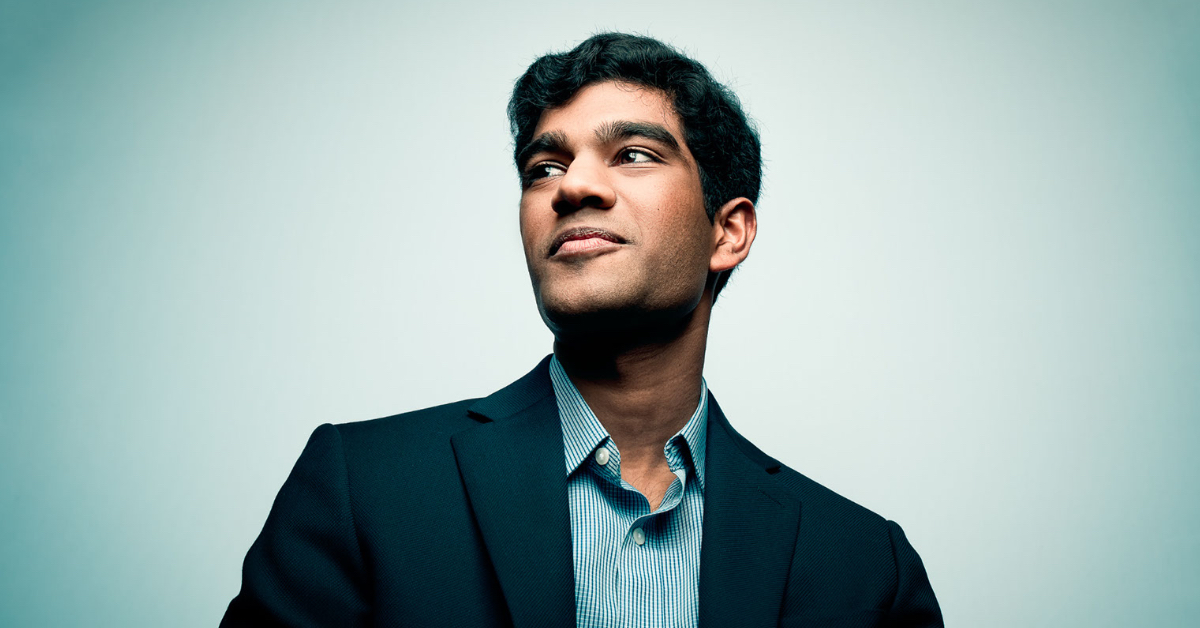Senior Mays Student the Lead Author on Article Published in Preeminent Journal
April 19, 2022
|
Dorian Martin
Sunjay Letchuman ’22, a senior at Texas A&M University’s Mays Business School, is the lead author on the article, “Revise the IRS’s Nonprofit Hospital Community Benefit Reporting Standard,” published April 15, 2022 in Health Affairs Forefront, a preeminent journal for healthcare policy.
 Letchuman co-authored this article with his mentor, Dr. Leonard L. Berry, Mays Business School’s University Distinguished Professor of Marketing, along with Dr. Michael K. Hole, executive director of The Impact Factory and assistant professor at The University of Texas, and Dr. Ge Bai, professor of accounting at Johns Hopkins Carey Business School.
Letchuman co-authored this article with his mentor, Dr. Leonard L. Berry, Mays Business School’s University Distinguished Professor of Marketing, along with Dr. Michael K. Hole, executive director of The Impact Factory and assistant professor at The University of Texas, and Dr. Ge Bai, professor of accounting at Johns Hopkins Carey Business School.
Letchuman now has had four published articles and a fifth under review while an undergraduate student at Texas A&M. “It is unusual for an undergrad to publish an article regardless of where he or she is placed in the byline. To be the lead author for an article in which the other authors are MDs or Ph.Ds. means that Sunjay earned the placement by leading the way throughout,” Berry said. “Dr. Hole, Dr. Bai, and I have plenty of experience researching and writing articles and we pitched in during the cycle of multiple drafts, but Sunjay earned the lead author spot on his own merits.”
The article’s publication in Forefront offers the co-authors an important opportunity to inform and influence healthcare policymakers and industry leaders. “Appearing in the leading health policy journal, this article may actually lead to revision of the Community Benefit Standard, which, in turn, will enhance nonprofit hospitals’ involvement and investment in improving community health,” Berry said.
This paper analyzed the Community Benefit Standard, which is used by the Internal Revenue Service to determine whether a hospital qualifies as a nonprofit. “Over half of U.S. hospitals are organized as nonprofits, meaning they do not pay taxes in exchange for benefiting community health,” Letchuman said. “Unfortunately, however, most nonprofit hospitals do not provide more community benefit than their for-profit counterparts. A recent study showed that, for every $100 of total expenses, nonprofit hospitals spend just $2.30 on charity care (a key component of community benefit)—substantially less than the $3.80 of every $100 spent by for-profit hospitals.”
The co-authors suggest changes to the Community Benefit Standard in order to make nonprofit hospitals more accountable for enhancing the community’s health and welfare. “The federal, state, and local tax exemptions that nonprofit hospitals receive amount to over $25 billion annually. Local property tax dollars that nonprofit hospitals would have paid could have been used to build parks, improve schools, fix roads, and offer other services that bolster public health,” Letchuman said. “Our article describes which of the Community Benefit Standard’s 10 current standards should be kept, modified, or removed, and we include 3 new standards to add. Policymakers can use our article as a guide to strengthen current policy to ensure nonprofit hospitals fulfill their stated mission of promoting the health and well-being of the communities they serve.”
The article also reinforces the role that nonprofit hospitals can play in community wellbeing. “One of the biggest takeaways from this article is that nonprofit hospitals should focus on promoting and achieving community health equity, which means everyone has a fair opportunity to be as healthy as possible. This requires the dismantling of barriers to good health, including poverty, discrimination, and their consequences, such as access to stable housing and education,” Letchuman said. “As anchors in their communities, nonprofit hospitals can and should dedicate at least some of their surplus funds to address the social determinants of health, and they should make the value of their tax exemptions transparent to allow the public to evaluate the adequacy of community benefits provided.”
These publishing opportunities give Letchuman, who will enroll in the Icahn School of Medicine at Mount Sinai in the fall and plans to devote a part of his career to influencing healthcare policy, the chance to work with and learn from some of the world’s leading researchers. “I am humbled and constantly inspired by the researchers I get to work with,” the Mays student said. “These professors and researchers are doing the work I want to do one day—making high-quality healthcare more accessible to every American. It’s a privilege for me to learn from and work with my role models.”
His co-authors have been equally impressed with the Aggie’s work. “I am certain Sunjay will change the world for good, and I’m grateful I’ve had the chance to watch his rocket-ship career take off,” Hole said. “How fun, too, collaborating across “rival” institutions; we are certainly stronger together.”
###
Explore more on Sunjay:


